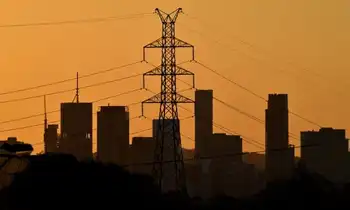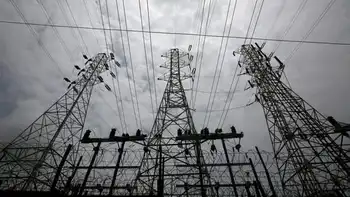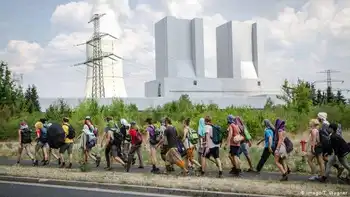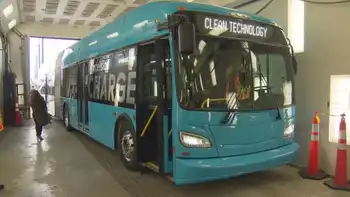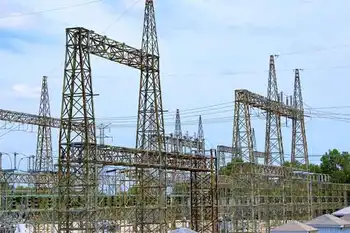Ellen Ruff in charge of Duke EnergyÂ’s newest nuclear plant
By Charlotte Observer
High Voltage Maintenance Training Online
Our customized live online or in‑person group training can be delivered to your staff at your location.

- Live Online
- 12 hours Instructor-led
- Group Training Available
And now, the 60-year-old has a new assignment. She is Duke's first president of nuclear generation.
Topping her to-do list is shepherding the Charlotte company's plans for the $18 billion William States Lee III plant near Gaffney, S.C., its first new nuclear plant in two decades. Duke has said it may look for partners to help with the cost.
Ruff previously worked as head of Duke Energy Carolinas since 2006. Her current assignment comes during great change for the industry, amid intense focus on carbon dioxide emissions, climate change, energy efficiency and a new administration coming to Washington. She reports directly to Duke CEO Jim Rogers now.
There's also been much criticism over Duke's save-a-watt proposal to conserve energy by offering financial incentives to encourage customers to buy energy efficient upgrades for homes and businesses. All customers would pay for the program through their monthly bills, although critics charged that Duke would make too much money on the program.
Ruff is also a board member of the United Way of Central Carolinas, which has seen its share of controversy following the firing of its CEO last year after disclosures of a lucrative pension deal.
A lawyer and Connecticut native, Ruff recently talked with the Observer about the industry and her new responsibilities. She spoke shortly before Duke announced it was freezing salaries this year for about half of its 18,000 workers.
Q. Tell me about your new job and your main goals for it.
It's all about nuclear. It's about refocusing on nuclear development generally, and specifically in the Southeast. It's a rising cost environment, and we are very anxious to find a way to develop nuclear in terms of being a clean source of energy, and non-carbon emitting.
Secondly, we're going to have reliable, affordable source of generation for our customers, because at the end of the day, this is about our customers, and having a source of generation there for them and finding a way to build nuclear in the most cost-effective way.
We'd like legislation that would further promote a concept to make nuclear generation affordable and easy to do in a joint venture structure. The goal will be outreach, talking to stakeholders that include regulators and legislators, and first of all talking to our sister utilities about what goals they have and what is mutually beneficial for the companies and the customers.
Q. What is the status of Duke's efforts to share costs on the Lee plant?
We have filed for a federal loan guarantee for Lee. In terms of partners, we don't have any now. We're just beginning.
Q. Can Duke go it alone on Lee if you wind up with no partners?
We certainly are prepared for that. The license application has that in mind, and we will be prepared for Plan B if that's the direction we need to go. Because primary in our obligation is to have reliable, low-cost electricity available and that includes Lee. We will always have a plan to get there. To be successful with regional generation it will have to be collaborative in some form.
Q. What is the status of save-a-watt, and why has there been resistance to it?
We're waiting for decisions from our regulatory commissions. We have customers that are asking for those products to be available so we're hopeful that we'll have a decision soon.
I wouldn't say it's a resistance to the program. There's huge support for energy efficiency as a component of the portfolio. The question is how do we price it. And I think 90 percent of the discussion around save-a-watt has been around the pricing mechanism that we proposed.
If we were a grocery store selling products, the concept of us being paid for selling less of a product is an unusual one. Save-a-watt is a very important part of the new paradigm going forward.
Q. How do you see the change in administration impacting your industry?
Every one of the new appointees in the Cabinet has talked about climate change. (Duke CEO) Jim Rogers has been out front in talking about the need to set the rules of the road for carbon and I think that's going to happen.
Climate change today is a reality, whether we have legislation in the first or second 100 days. I think it's been accepted as a reality by the public and we are going to find a way to address it, and the new administration has been very clear we will do that.
Q. What's your overall take on the economy?
It's hard times. I have three children, 25, 23 and 19, and I think it's an experience for them. It's a hard time to get jobs, unemployment appears to be rising, budget constraints are being discussed in regards to state budgets. I'm on the N.C. economic development board. That's a subject of discussion, how are we going to move to Plan B in this economy and still weather the storm and make progress.
For us, we still have to maintain the long view, because so much of what we do is the long view. Part of my role in this area is exactly that, to take those steps forward on nuclear. But this company, in my 30 years, Duke has always been focused on the cost containment issues.
There's always a concerted effort on cost control, whether there are signs of a recession or not. When it first occurred, we drew down on our line of credit. We drew a billion dollars to ensure our liquidity and our ability to be in the market.
Q. You've spent about 30 years at Duke. To what do you attribute your longevity?
Duke's motto when I came to work was citizenship and service. And throughout the 30 years, I've seen that commitment from this company and seen its importance to the region. On an individual basis for me, it was an opportunity to work on incredible complex issues but one that is ultimately important to everyone you meet in the grocery store.
What I have loved the most about this last job and going forward is the interaction with people. When you open yourself up for that, it is absolutely terrific.
Q. As a United Way board member, how do you restore public confidence in the agency?
I think United Way has taken the steps, formed the independent committee to look at both the internal structure and the governance structure related to United Way. It was a learning experience for many of us (on the board) but I think we came out on the other side knowing more about the importance of being transparent because it is certainly critical to restore that confidence. I think we did the right thing in taking the steps to restore the transparency.
Q. Tell me something about yourself outside of work that would surprise people who know you?
My husband's a vegetarian so I'm a very good vegetarian cook. I had about 17 people for Thanksgiving, and said to my middle son, "You know I don't like cooking meat much anymore. He said, I knew it, you're going to become like Dad."





